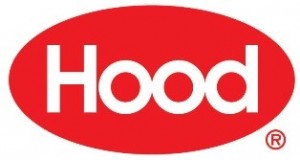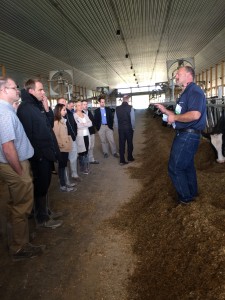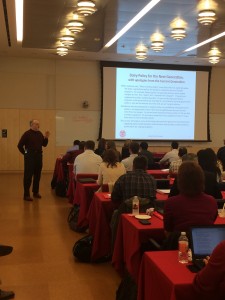By: Tristan J. Zuber, Dairy Foods Specialist, Harvest NY Program, Cornell University
New York is not only a great place for dairy farms, but is also a great place to start-up and expand a dairy manufacturing company. The truth is that dairy farms represent 48% of New York State’s agricultural income, provide over $14.8 billion in economic output and the overall dairy industry – both manufacturing and farming – employs over 19,000 of New York’s residents. The state’s farmers are currently a net supplier of 2.8 Billion pounds of milk to the surrounding northeast states, proving there are opportunities to grow in value-added dairy foods manufacturing. In a 2009 Cornell University study, 35% of food manufacturers in New York State expected to make capital investments and even more planned to grow their workforce; much of this growth in dairy foods manufacturing.
But why here and why now? Thinking broadly, New York State has the perfect conditions for continued growth in dairy foods manufacturing – politically, environmentally and strategically. Furthermore, under the leadership of Cornell University, Harvest New York has launched a new initiative, “New York Loves Food Industry” with partners the Genesee County Economic Development Center, Buffalo Niagara Enterprise and others that seek to attract new food and dairy manufacturing in New York. Below are the top 7 reasons why New York is the place for your Dairy Foods Business.
1. Favorable State Policies and Business Incentives.
Under Governor Andrew Cuomo’s, New York State has made food and agriculture a priority in policy and investment activity over the past four years. In the recently announced 2014 Regional Economic Development Council Awards, tax credits and Empire State Development grants and tax credits were provided to numerous dairy manufacturers to support expansions and renovations. In addition, grants were awarded for creation of business incubators and commercial kitchens, advanced and food manufacturing training opportunities, renewable energy and waste management for food manufactures and revolving loan options for agricultural entities. Food and food manufacturing is a top priority for all regions across New York State and continues to receive significant attention and funding.
2. Available Pool of Talented Workforce and New Training Programs.
New York State has over 469 colleges and universities that offer degrees and certificates with over 1.35 million students enrolled, graduating 300,000 in 2012. Many colleges across the state are launching new educational programs to better train employees for the dairy processing industry in food safety, quality and processing efficiency. This fall, Erie Community College launched a certificate program in Biomanufacturing with a food-processing track and Genesee Community College enrolled their first cohort of students in the new Food Processing Technology degree program. Cornell University’s Department of Food Science has approximately 140 undergraduate students and 80 graduate students – many of them looking for reasons to stay in New York and provide opportunities for innovation to the state’s food industry. In addition, the Cornell Dairy Foods Certificate Program enables those already in the industry to expand practical knowledge through the use of hands-on teaching and research application.
Furthermore, New York State has a long history of manufacturing dairy products, and has a broad range of experience. Many dairy food companies and their employees have been here for generations, passing along knowledge that can help the entire industry succeed. In New York, the businesses believe that success breeds success and a more robust dairy manufacturing industry is good for everyone.
3. Strategic Dairy Farm Industry.
New York State has some of the most forward thinking dairy farmers in the world. New York’s farmers have been able to optimize natural resources to become more efficient. Over the last five years, cow numbers have leveled off to approximately 610,000, yet production continued to grow substantially. From 2009 to 2013, milk production per cow increased 10.2%, confirming New York dairy farmers’ commitment to efficiency.
New York State is poised to support a sustainable dairy industry because of the abundant natural resources, industry collaboration, and commitment to agricultural land protection. The northeast is less likely to experience drought conditions that can damper the economic vitality of dairy farms. Our farmers have been able to form strategic alliances that commit to an efficient, profitable environmentally responsible and consumer conscious dairy industry – specifically though organizations such as the Northeast Dairy Producers Association and the New York Animal Agriculture Coalition. New York is a great state for dairy farming and our farmers are committed to proving it.
4. Accessibility to Major Markets.
Upstate New York is within a 10-hour drive to a consumer base that represents over 40% of the United States population and 59% of the Canadian population. Major cities such as New York, Boston, Philadelphia, Washington DC are a short drive and Upstate New York can provide a roll in supplying these major markets with the necessary food supply. New York’s physical location enables food and dairy companies to gain major access to Canadian markets including the city of Toronto and Montreal.
All of these accessible cities provide access to a broad range of consumer segments – spanning different age groups and ethnicities that enable food companies to assist in new product development and business growth to meet their broad needs.
5. Favorable and Improving Infrastructure.
Being able to run your business and access your customers is extremely important for business success. New York State produces 32.3 gigawatt-hours of renewable energy every year, has over 114,000 miles of public roads, 37 freight railroads covering almost 3,500 miles, and 141 public airports. Additionally, New York is uniquely positioned to supply the international market with a vast port systems. The 27 ports in New York State handled approximately 40 million short tons of cargo in 2009, allowing dairy companies the ability to access international markets. In the recently announced Regional Economic Development Council awards, many awards were for infrastructure improvement, confirming the state’s commitment to creating further improvements to transportation routes and foster economic development.
Economic Development Agencies are also helping to create an environment to foster an environment for food and dairy companies to grow and expand. The Genesee County Economic Development Center (GCEDC) specifically targets the food industry and has developed Genesee Valley Agri-business Park, a 250-acre shovel-ready property that includes low cost aquifer water, municipal water, transmission level electric, an 8″ gas line, and an available rail spur with a main line rail nearby. The GCEDC recently received an award from the Northeast Economic Developers Association for the 2014 Project of the Year for their efforts to successfully bring Muller Quaker Dairy to Western New York. Fulton County Center for Regional Growth is another park that seeks out food companies specifically. Many other economic development agencies are seeing the value of attracting food businesses and are exploring similar avenues to encourage growth in food and dairy processing
6. Robust Supply Chain Network.
New York is also home to many companies beyond the farm level who supply to the dairy foods industry. This map indicates that New York has a broad range of engineering firms, ingredient companies, laboratories and consultants, all poised to support your business needs. For every new job that is created in dairy foods manufacturing, 5.6 additional jobs are created in the supply chain. In 2012, over 9,400 New York State residents worked in dairy foods manufacturing, indicating that over 52,000 worked in industries that support the dairy foods processing industry. There are also resources such as FuzeHub and EWI that support manufacturers by providing connections that create reliable and targeted manufacturing solutions.
7. World Renowned Academic & Research Capabilities.
New York State is home to some of the world’s best research institutions in the world. The state has over 19 academic institutions that have focus on the food and beverage industry. Cornell’s College of Agriculture & Life Sciences received $125 million in research expenditures in 2011 and is a worldwide leader in food and agricultural research. Rochester’s Institute of Technology is a top university in consumer packaging and graphic design. SUNY Cobleskill is in the midst of securing plans for food and agricultural center. Furthermore, a new state program known as Start-Up NY enables businesses to collaborate with college and universities to access to state-of-the art facilities that enable companies to start, expand, or relocate your business in tax-free zones. New York research institutions have the ability to partner with private industry to spur innovation, conduct research and incubate start-up companies to ensure long-term success. The new Cornell Institute for Food Systems Industry Partnership Program enables companies to partner and foster further collaboration on research and training opportunities.
The reasons why New York is a great place for your dairy business is because the private, public and educational sectors are working together for continuous improvement for the industry. This collaboration between industry, academia and government will ensure that New York State continues to be a world leader in the dairy foods industry. By optimizing our currently available resources and expanding upon our success, we have the true ability to attract, expand and grow the industry and to create a sustainable future for our farmers, suppliers and processors. For more information, please contact Tristan Zuber at tjz2@cornell.edu and visit our website where resources are listed (Harvest New York – New York Loves Food Industry)


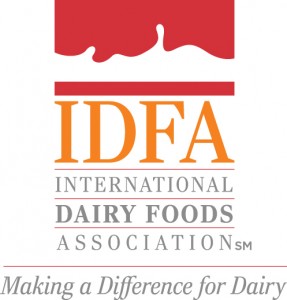
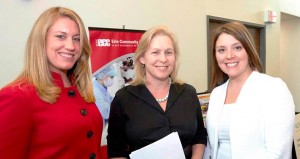
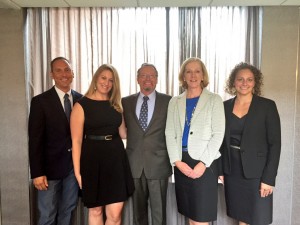
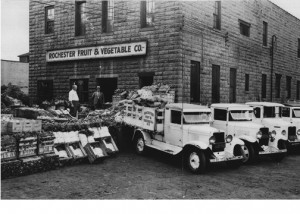 one of the best places to work in America. Today, with over 45,000 employees in 85 stores throughout 6 states, Wegmans continues to be an industry leader and has been named one of Fortune’s “100 Best Companies to Work For” for 18 consecutive years, ranking 7th in 2015. From the top executives to cashiers, Wegmans is more than a grocery store; they donate about 16 million pounds of food to local food banks each year, have awarded $90 million in tuition assistance to its employees, and sponsored numerous educational initiatives that help children to become healthy, productive adults.
one of the best places to work in America. Today, with over 45,000 employees in 85 stores throughout 6 states, Wegmans continues to be an industry leader and has been named one of Fortune’s “100 Best Companies to Work For” for 18 consecutive years, ranking 7th in 2015. From the top executives to cashiers, Wegmans is more than a grocery store; they donate about 16 million pounds of food to local food banks each year, have awarded $90 million in tuition assistance to its employees, and sponsored numerous educational initiatives that help children to become healthy, productive adults.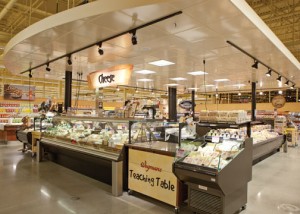 class artisan cheese industry in New York, which will be prominently featured at Wegmans locations across the state.
class artisan cheese industry in New York, which will be prominently featured at Wegmans locations across the state.